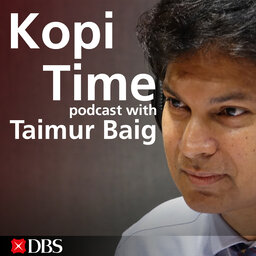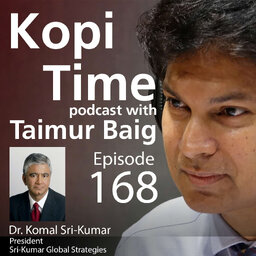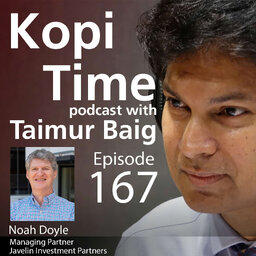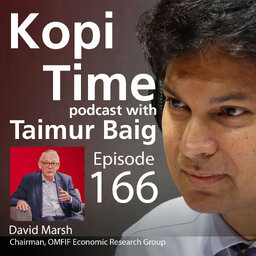Kopi Time E101 - Reviewing our Top-10 Episodes
This series began right before the 2020 global pandemic, and at that time the idea was to record chats with thinkers I meet during my travels. I really doubt if I’d have a hundred episodes under that model of operation. But once the pandemic broke out, remote recording with guests all over the world became acceptable, and away we went.
Now 100 episodes is a lot, and there have some really memorable ones. We have covered our bread and butter, global macro and markets, in 41 episodes, but we have gone way beyond that as well. Given the times we live in, we have had a dozen episodes on geopolitics, eight on tech and fintech, and a dozen on climate change, an issue close to my heart. Beyond that, we have covered banking, energy, metals, crypto, financial inclusion, health, science and innovation, gender, and wealth management. Quite the breadth, never a dull moment!
In this episode, we review the top-10 most downloaded and viewed episodes on Kopi Time. The number 1 in this ranking, in fact, has over 175k views and nearly 900 comments on youtube!
Thanks to our listeners for their support and kind encouragement for this series.
 DBS Economics & Strategy
DBS Economics & Strategy


